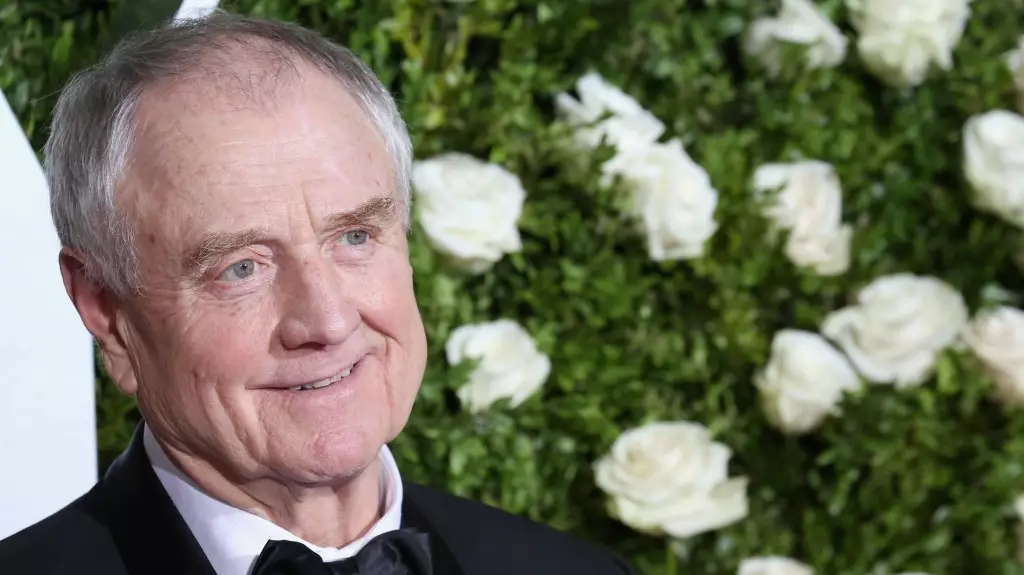The loss of Denis Arndt at the age of 86 marks the end of an era for a man who was as captivating on stage as he was complex off it. With a career that spanned decades, Arndt embodied the very essence of the character actor. His commitment to his craft, from his early days on the local theater scene to his acclaimed performances on Broadway, reflects a dedication to the art form that many aspire to but few truly attain. It’s a crime against art that we often only appreciate actors posthumously, yet Denis’s work is one of those legacies that will not fade away. When you witness talent so rich and nuanced, like Arndt’s, it reframes our understanding of what it means to be a performer.
From Warfields to Stage Lights
Denis’s journey from serving as a helicopter pilot in the Vietnam War to finding his calling in acting adds another layer of complexity to his life story. When someone faces the adversities of war, it can either break them or lead them to find a meaningful expression of their experiences. For Arndt, it seemed to foster a deeper understanding of human emotion, which he channeled into his performances. The duality of his life—the disciplined military man juxtaposed against a fervently artistic spirit—invites us to question the norms of masculinity and vulnerability. Many might think that such a transition is incongruous, but perhaps it’s this duality that made his characters so authentic and relatable.
Achievements on the Stage and Screen
He left indelible marks on beloved TV shows such as “Murder, She Wrote” and “Grey’s Anatomy,” demonstrating that the dimension of a character does not have to be deep for it to resonate. A brief yet poignant role in “Basic Instinct” allowed his talent to shine among heavy-hitting stars like Sharon Stone, while his turn in Simon Stephens’ “Heisenberg” earned him a Tony nomination and sent ripples through the industry. The accolades are nice, but they don’t fully encapsulate the essence of a performer who could instantly ignite the stage with just a few moments of brilliance. Here lies the paradox of typecasting in Hollywood: where an actor of Arndt’s caliber could easily transform into a leading man yet chose to embrace the roles that others may overlook.
Legacy Beyond the Spotlight
While the obituary emphasizes his professional achievements, it’s the personal anecdotes that reveal the heart behind the man. He was described as having “incredible wit, charm, and a rebel spirit,” qualities difficult to compartmentalize yet essential to understanding his legacy. One must wonder how those traits informed his relationships and his worldview. Arndt’s ability to forge connections on and off stage is a testament to the unifying power of art—a concept often lost in today’s fragmented media landscape. In an age where fame is often transient and shallow, Arndt’s work reminds us that true artistry lies in depth and nuance.
Reflecting on Cultural Impact
During the last few decades, the American cultural landscape has undergone tremendous upheaval, yet Denis Arndt’s art has remained a touchstone. His performances unfurl narratives that challenge the status quo, defying the triviality that too often permeates the industry. From engaging with Shakespeare to navigating modern dramas, his contributions speak volumes about the importance of versatile storytelling. It’s not merely entertainment; it’s a form of social commentary that prompts audiences to engage in meaningful dialogue.
In the wake of his passing, we must consider how we honor the legacies of artists like Denis Arndt. As a society, do we support the arts with the vigor required to nurture future generations? If anything, his life serves as a clarion call to advocate for a richer, more diverse cultural narrative, one that recognizes and celebrates not just the greats but also the everyday artists whose work shapes our understanding of humanity.
Denis Arndt’s journey is not merely an account of an actor; it’s a story of relentless passion, a search for human connection, and a celebration of the artistic spirit that refuses to be confined by the limits of a script. His legacy is one of profound significance, eloquently reminding us that art, in all forms, is indispensable in fostering empathy and understanding within today’s often divided world.

